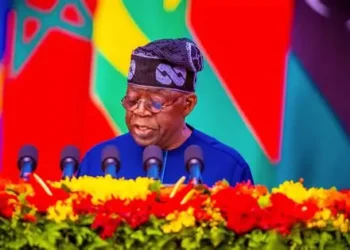Lebanon’s Prime Minister Nawaf Salam on Saturday unveiled a new government, ending two years of caretaker rule. The new administration takes shape as a seismic shift takes hold in the country’s political landscape, with the long-dominant force in Lebanese politics-Hezbollah-weakened.
In remarks at the presidential palace in Baabda, east of Beirut, Salam said he hopes to head a “government of reform and salvation.” He promised to restore ties of trust with the international community after years of economic meltdown, rampant corruption, and a brutal war between Israel and Hezbollah.
The new government has huge tasks ahead, such as implementing critical reforms to secure international donor funding, maintaining a fragile ceasefire between Israel and Hezbollah, and spearheading the country’s recovery from years of crisis.
The presidency, in a post on X, announced that President Joseph Aoun had signed a decree forming a 24-member government. It also announced two other decrees: one to accept the resignation of the caretaker government headed by Prime Minister Najib Mikati and another to formally appoint Nawaf Salam as prime minister to head the new administration.
A Diverse Cabinet with Key Appointments
The new government includes five women and a host of other influential figures, including Ghassan Salame, the former United Nations envoy to Libya. It is emblematic of Lebanon’s Byzantine sectarian power-sharing system, in which ministers were selected after exhaustive consultations with political leaders.
The once strong political party, Hezbollah, of Lebanon, has lost its influence after major defeats. The group had suffered heavy casualties in the war with Israel, including the death of its leader, Hassan Nasrallah, in a major airstrike last September. It also suffered from the defeat of Bashar al-Assad in Syria last December 8, which was also an important blow to them since it cut off a vital supply line of weapons from Iran.
The loss of influence by Hezbollah was a pathway for the election of President Aoun, an ex-army chief generally seen as Washington’s favorite, to assume office. His election ended over two years of political paralysis that saw Lebanon without a president.
A New Chapter for Lebanon
The new Prime Minister, Salam, had formed a government in less than a month, which itself is a record considering that in such countries the formation of any government takes several months through political bargaining. In addition, this was welcomed by the United Nations: “The new government heralds a new and brighter chapter for Lebanon.”
Salam said that his government would exclude all political parties and individuals who would also stand in coming parliamentary elections. His new administration now has to produce a ministerial statement, which is required to be brought before parliament with a vote of confidence within 30 days as a requirement to assume full powers.
Meanwhile, the 128-seat parliament remains very much an assembly of old, sectarian-based parties. Key challenges facing the new government will include revising deals with international organizations such as the International Monetary Fund and holding parliamentary elections scheduled for next year.
As Lebanon embarks on this new phase, what everybody will watch-both inside the country and out-is whether this government is capable of fulfilling the promise it made to lead a reform-oriented process toward stability and recovery.
Lebanon’s PM Nawaf Salam Announces New Cabinet, Vows Reform and Rebuilding Efforts
ADVERTISEMENT
ADVERTISEMENT









